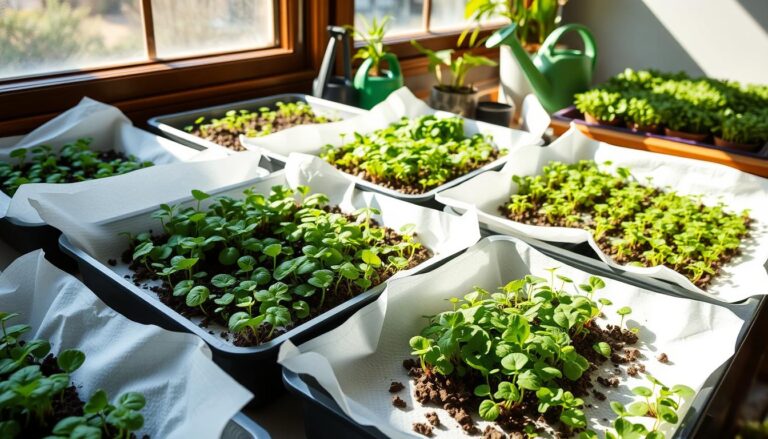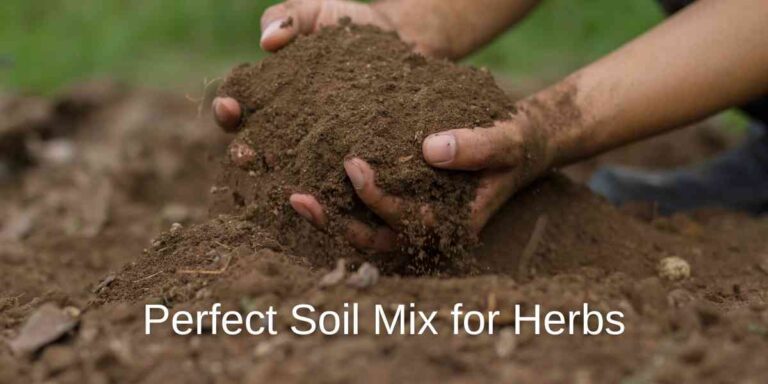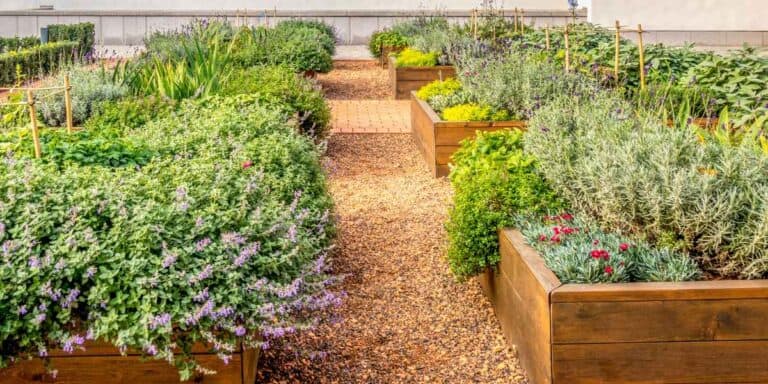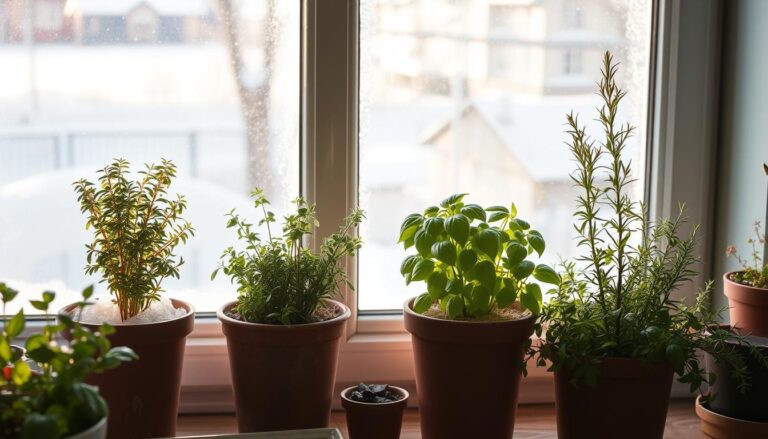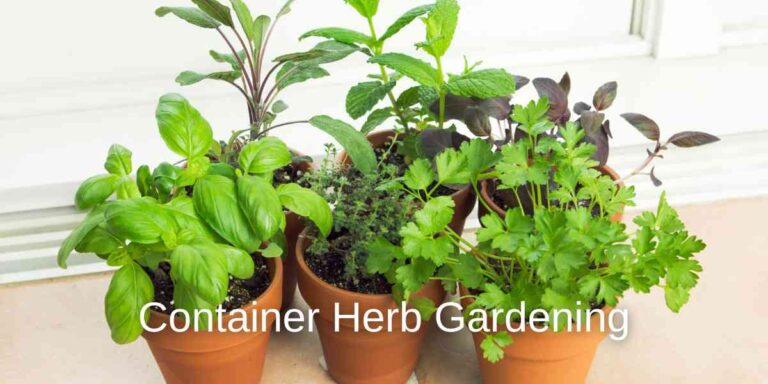Mediterranean Herbs Growing: Tips for Sage, Rosemary, and Thyme etc.,
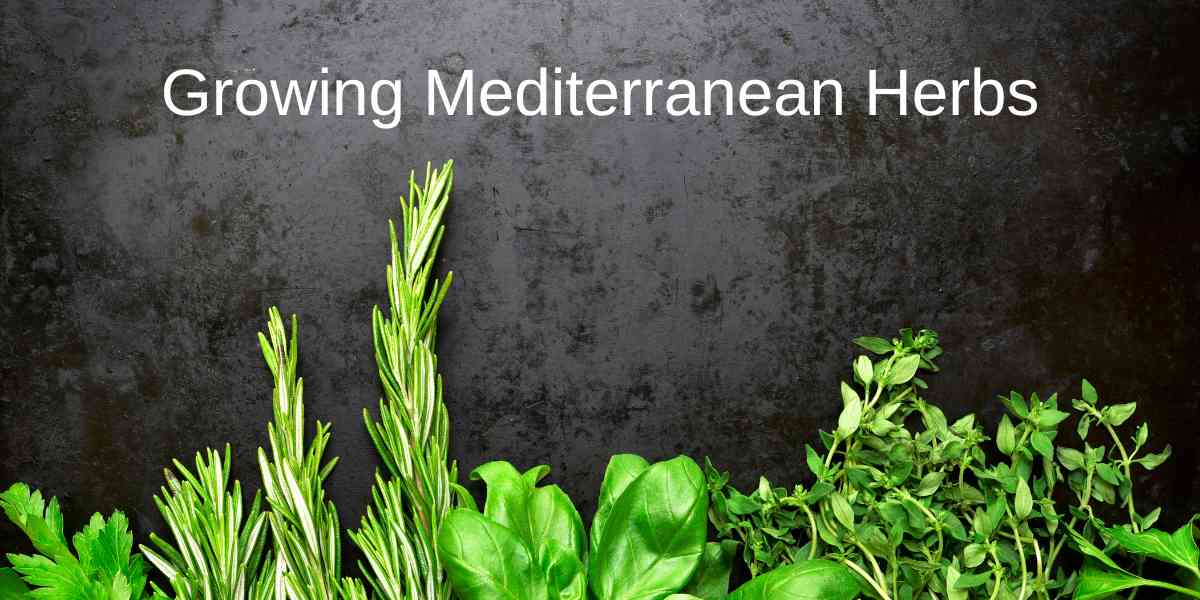
Introduction
Ever noticed how some herbs have strong, beautiful smell and grow even in hot weather? These special plants are called Mediterranean herbs. They come from places near Mediterranean sea where weather is hot and sunny, just like many parts of India!
Mediterranean herbs like rosemary, sage, and thyme are becoming very popular in home gardens. Why? Because these herbs are tough plants – they need less water, grow well in pots, and stay alive for many years. Plus, their aromatic leaves make food taste amazing.
The best part about these herbs is that they grow well together. Imagine having a small garden with rosemary’s pine-like smell, sage’s soft grey leaves, and thyme’s tiny fragrant foliage. Not just these, but other Mediterranean herbs like oregano and lavender also make garden look and smell wonderful.
Many people think growing Mediterranean herbs is difficult. But actually, if we understand few basic things, these perennial herbs grow very easily. They can grow in normal pots, need very little care, and give fresh leaves throughout year.
This article along with our comprehensive guide about herb gardening, should help your Mediterranean herbs growing easy.
Understanding Mediterranean Herbs
Before starting to grow Mediterranean herbs, let’s understand what makes these herbs special. Knowing their basic needs helps us grow them better.
What’s Special About These Herbs? Mediterranean herbs like sage, rosemary, and thyme come from places with hot summers and mild winters. That’s why they grow well in sunny places. These aromatic herbs have special features that help them live in tough conditions. Their leaves are often thick or small, which helps save water. Most have strong smell that keeps away garden insects.
Climate These Herbs Like These herbs love:
- Full sun for most of day
- Hot, dry weather
- Good air flow
- Less water
- Well-drained soil
In home gardens or pots, we need to copy these conditions. The good news is that most Indian cities have perfect weather for these herbs. Even in rainy season, they grow well if we give them good drainage.
Growing Together Mediterranean herbs make good garden friends because they need similar things. We can grow sage with rosemary, add some thyme and oregano, even mix some lavender. Their aromatic foliage looks nice together, and all these herbs need same type of care.
Basic Growing Conditions To grow well, these perennial herbs need:
- Pots with good drainage holes
- Rocky or sandy type soil
- 6-8 hours direct sunlight
- Space for air to flow
- Protection from heavy rain
Best Mediterranean Herbs for Home Growing
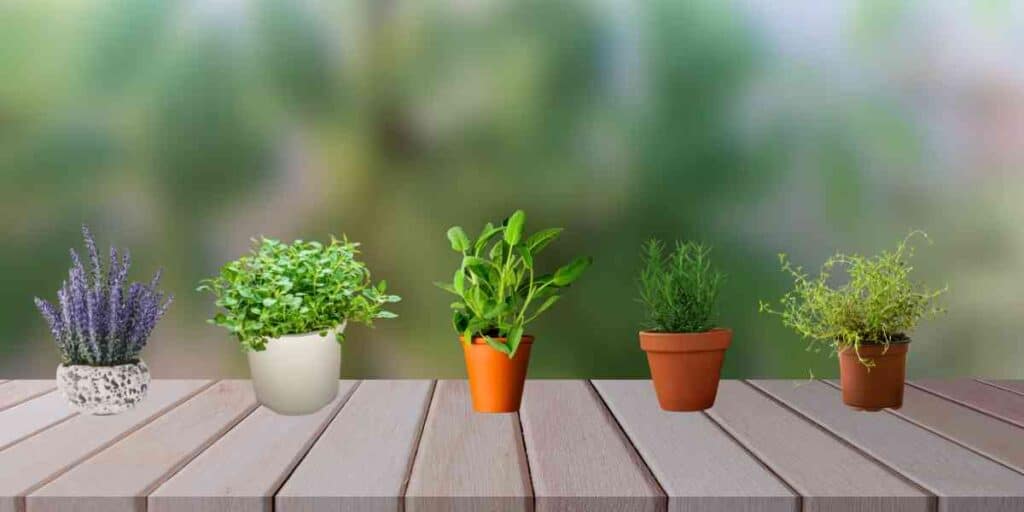
Let’s look at some popular Mediterranean herbs that grow well in home gardens. Some are very easy to grow, while others need little more care. But all give wonderful aromatic leaves for cooking.
Easy to Grow Herbs
Rosemary: This aromatic herb is perfect for beginners. It grows into a small bush with needle-like foliage. Rosemary can live many years in same pot. Plant needs little water and gives nice smell to garden. Its small blue flowers also look beautiful.
Thyme: A small but strong herb that spreads nicely in pots. Thyme has tiny fragrant leaves and stays close to ground. Perfect for small spaces and pot edges. Grows well with other Mediterranean herbs and needs very little care.
Medium Difficulty Herbs
Sage: This beautiful herb has soft, grey-green leaves. Sage grows well in pots but needs good drainage. Its aromatic leaves are great for cooking. Plant gives pretty purple flowers that make garden look nice.
Oregano: Very useful herb that spreads well. Oregano needs little more water than other Mediterranean herbs. Grows fast in summer and gives lots of aromatic leaves. Can grow well with thyme and sage.
More Challenging Herbs
Lavender: Everyone loves its smell, but lavender needs more care. Needs perfect drainage and lots of sun. But once growing well, its purple flowers and strong foliage make garden look amazing.
Marjoram: Similar to oregano but more delicate. Needs protection from strong rain. Gives very fragrant leaves and small white flowers. Grows well with other Mediterranean herbs.
Best Parts About These Herbs:
- Most are perennial – live many years
- Need similar growing conditions
- Give aromatic leaves all year
- Look good together in garden
- Natural pest control
Growing Requirements

Growing Mediterranean herbs successfully needs some basic things. Let’s see what these aromatic herbs need to grow well in our home garden.
Soil and Drainage
These herbs hate wet feet! They need special soil mix:
- Use sandy, loose soil
- Add small stones or gravel
- Mix some coarse sand
- Must drain water quickly
- Never use heavy garden soil
Best type of mix:
- 2 parts potting soil
- 1 part sand or perlite
- 1 part small stones
This mix gives good drainage that Mediterranean herbs love.
Sunlight Needs
Mediterranean herbs are sun lovers. They need:
- 6-8 hours direct sunlight
- Morning sun is best
- South or west facing space
- Protection from heavy rain
- Good air flow around plants
Choosing Right Pots
Pot selection is very important for these herbs:
- Terra cotta pots work best
- Must have drainage holes
- Wide pots better than deep
- Size depends on herb type:
- Big pots for rosemary and sage
- Medium for oregano and lavender
- Small pots fine for thyme
Water Management
Most Mediterranean herbs die from too much water, not too little.
Water only:
- When top soil feels dry
- Early morning time
- Less in winter
- Never keep water in plate
- Reduce in rainy season
Care and Maintenance
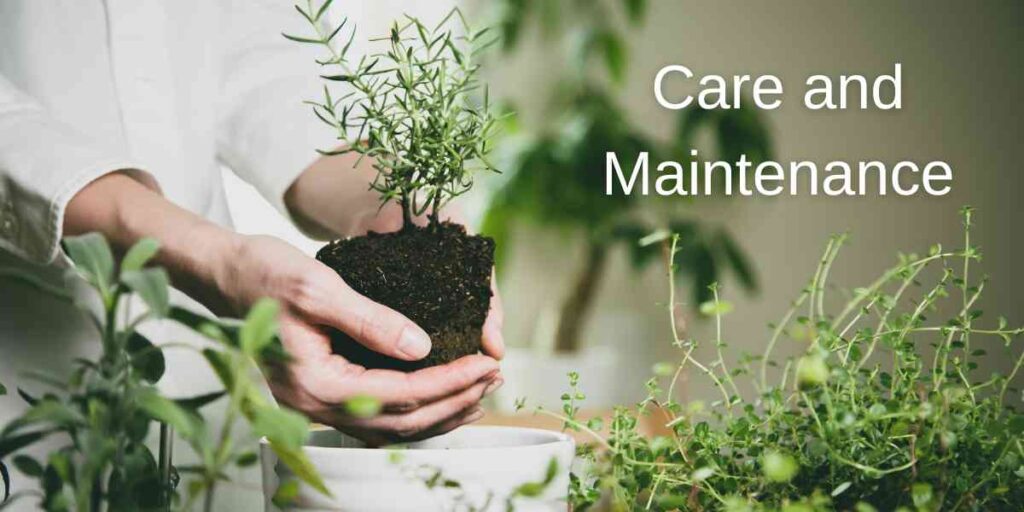
Taking care of Mediterranean herbs is easy once we understand their basic needs. These tough, aromatic plants actually grow better with less fussy care.
Regular Care Tips
Watering Care:
Don’t rush to water these herbs daily. Check soil by pushing finger – if dry, then water. Remember, these perennial herbs have deep roots and prefer dry conditions. Too much kindness with water can harm their foliage.
Feeding Needs:
These herbs don’t need much food. Tips for healthy growth:
- Light feeding twice a year
- Use organic fertilizer only
- Avoid rich compost
- No fresh manure
- Less food means more aromatic leaves
Pruning for Better Growth
Regular cutting helps Mediterranean herbs grow bushy:
- Cut rosemary tips often
- Trim sage after flowering
- Shape thyme lightly
- Remove dead foliage
- Cut oregano regularly
Seasonal Care
Summer Care:
- Regular morning water
- Extra drainage check
- Remove weak growth
- Protect from hot winds
Winter Tips:
- Reduce watering lot
- Move pots to sunny spot
- Cut back old growth
- Check drainage again
Common Problems and Solutions
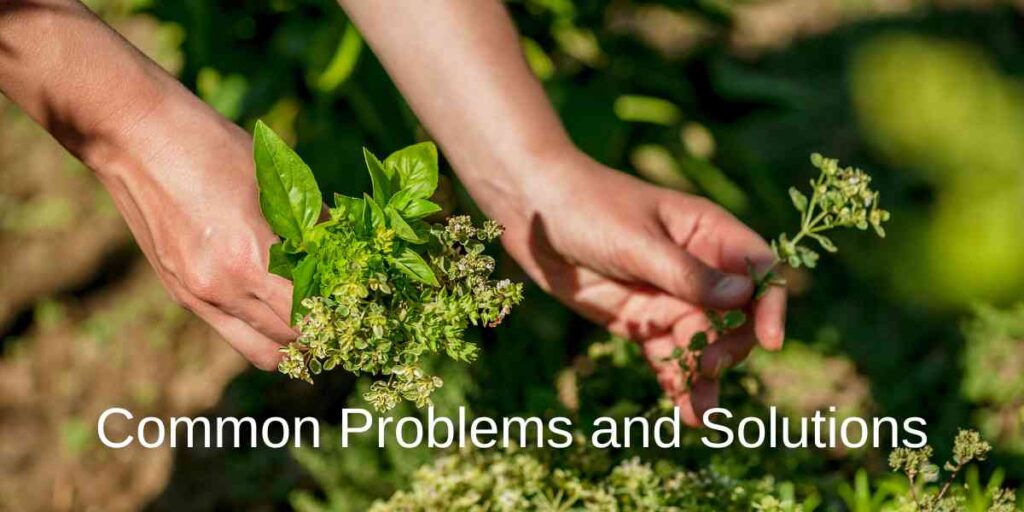
Even these tough Mediterranean herbs sometimes face problems. But don’t worry – most issues have simple solutions. Let’s see common problems and how to fix them.
Yellow Leaves
If aromatic herbs get yellow leaves:
- Usually means too much water
- Check pot drainage
- Let soil dry between watering
- Remove affected foliage
- Move to sunnier spot
Not Growing Well
When herbs look weak:
- Check if enough sun
- See if soil drains well
- Maybe pot too small
- Could need light feeding
- Give more space for air
Dying Branches
Sometimes parts of herbs die:
- Cut dead parts quickly
- Check roots not too wet
- Make sure drainage works
- Give more sunlight
- Reduce water if needed
Pest Problems
Mediterranean herbs rarely get pests because of their strong smell, but sometimes:
- Look under leaves
- Spray neem oil mix
- Remove affected parts
- Keep air flowing
- Don’t overcrowd plants
Prevention Tips
- Start with good drainage
- Don’t overwater
- Give full sun
- Use right size pots
- Check plants regularly
Conclusion
Growing Mediterranean herbs at home is easier than many people think. These aromatic plants like rosemary, sage, and thyme don’t need much care – just sun, good drainage, and little water. Once they start growing well, these perennial herbs give us fresh leaves for many years.
Best thing about Mediterranean herbs? They make garden look and smell wonderful. Their aromatic foliage keeps garden fresh, and some like lavender give beautiful flowers too. Plus, these herbs are perfect for Indian weather – they love sun and can handle heat well.
Why not start growing these special herbs today? Begin with easy ones like rosemary or thyme. Soon you’ll have your own Mediterranean herb garden at home!


